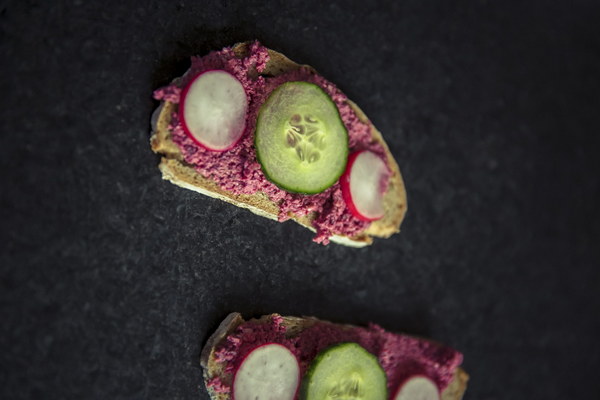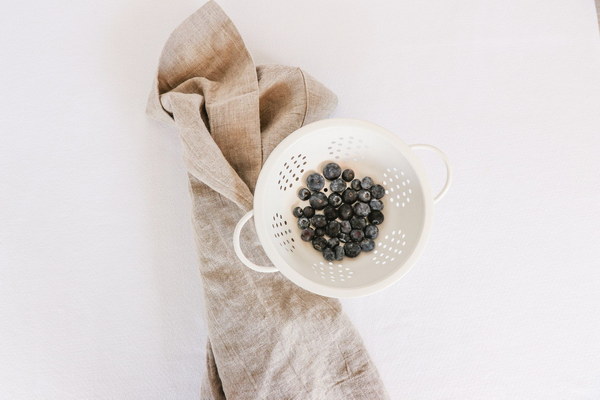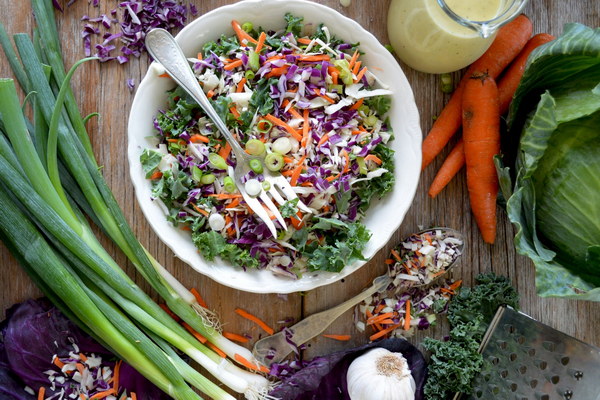Can a Baby Maintain a Strong Spleen Without Consuming Vegetables
Introduction:
The question of whether a baby can maintain a strong spleen without consuming vegetables is a topic that often arises among parents. The spleen plays a vital role in the body's digestion and absorption of nutrients. Therefore, it is crucial to understand the importance of vegetables in a baby's diet for optimal spleen health. In this article, we will explore the role of vegetables in spleen health and whether a baby can thrive without them.
The Importance of Vegetables in Spleen Health:
Vegetables are an essential part of a balanced diet, especially for babies. They provide a wide range of nutrients that are vital for the growth and development of a baby's body, including vitamins, minerals, and fiber. Here are some key reasons why vegetables are important for a baby's spleen health:
1. Vitamin C: Vitamin C is a powerful antioxidant that helps protect the body against infections and supports the immune system. Vegetables like bell peppers, broccoli, and spinach are rich in vitamin C, which can help strengthen the spleen's immune response.
2. Iron: Iron is crucial for the production of red blood cells, which carry oxygen throughout the body. Vegetables like spinach, kale, and sweet potatoes are excellent sources of iron, which can help maintain a healthy spleen and support overall blood health.
3. Fiber: Fiber plays a significant role in digestion, helping to regulate bowel movements and prevent constipation. Vegetables like carrots, beans, and peas are high in fiber, which can aid in maintaining a healthy spleen and digestive system.
4. Probiotics: Some vegetables, such as sauerkraut and kimchi, contain probiotics, which are beneficial bacteria that promote gut health. A healthy gut is essential for a strong spleen, as the two organs work together to fight infections.
Can a Baby Maintain a Strong Spleen Without Consuming Vegetables?
While it is possible for a baby to maintain a strong spleen without consuming vegetables, it may not be the most ideal approach. Here are a few points to consider:
1. Nutrient Variety: Vegetables provide a wide range of essential nutrients that are not easily found in other food groups. Without vegetables, a baby may miss out on important vitamins and minerals, which can impact overall health and spleen function.
2. Digestive System Development: The digestive system of a baby is still developing, and vegetables can help in the process. Fiber-rich vegetables can aid in the development of a healthy gut and promote regular bowel movements, which is crucial for a strong spleen.
3. Immune System Support: Vegetables are rich in antioxidants, which help protect the body against infections. Without vegetables, a baby may be more susceptible to illnesses, which can put additional strain on the spleen.
Alternatives to Vegetables:

If a baby is not consuming vegetables, it is essential to explore alternative food sources that can provide similar nutrients. Here are a few options:
1. Fruits: Fruits are a great source of vitamins, minerals, and antioxidants. Apples, berries, and bananas can be introduced into a baby's diet to provide some of the nutrients found in vegetables.
2. Fortified Foods: Some baby foods and cereals are fortified with essential nutrients, including iron, vitamin C, and fiber. These fortified foods can help ensure that a baby is receiving the necessary nutrients for a healthy spleen.
3. Animal Proteins: Animal proteins, such as lean meat, poultry, and fish, are excellent sources of iron and protein. Including these foods in a baby's diet can help maintain a healthy spleen and support overall growth and development.
Conclusion:
While a baby can maintain a strong spleen without consuming vegetables, it is not the most advisable approach. Vegetables provide a wide range of essential nutrients that are vital for a baby's growth and development. To ensure optimal spleen health, it is best to incorporate a variety of vegetables into a baby's diet, along with other nutrient-rich foods. Consulting with a pediatrician or a nutritionist can help tailor a baby's diet to meet their specific needs and promote a healthy spleen.









